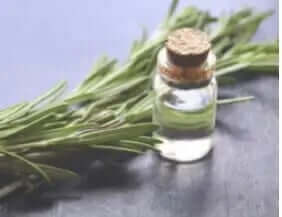Telomerase: The Revolutionary Enzyme That Could Transform How We Age
Imagine a world where aging could be slowed, where cells could be rejuvenated, and where the biological clock could be reset. This isn't science fiction—it's the promise of telomerase, a remarkable enzyme that's capturing the attention of researchers worldwide. Recent breakthrough studies have shown that telomerase treatment can actually extend lifespan in laboratory settings, opening up exciting possibilities for human health and longevity.

Dr. Maria Blasco, Director, Molecular Oncology Programme, Spanish National Cancer Research Centre (CNIO)
What Is Telomerase and Why Does It Matter?
Telomerase is an enzyme that plays a crucial role in cellular health and aging. It works by maintaining and repairing telomeres—the protective caps at the ends of our chromosomes. Think of telomeres like the plastic tips on shoelaces: they prevent our genetic material from fraying and deteriorating. Every time our cells divide, these telomeres get shorter, eventually leading to cellular aging and dysfunction.
The discovery of telomerase's potential has sparked a revolution in anti-aging research. Scientists have found that by activating or introducing telomerase into cells, they can potentially slow down or even reverse certain aspects of cellular aging. This breakthrough understanding of telomerase function has led to groundbreaking experiments that are reshaping our approach to longevity science.
Groundbreaking Telomerase Treatment Study Shows Promise
On May 15th, the Journal for Molecular Medicine published a landmark telomerase treatment study that sent ripples through the scientific community. Led by Dr. Maria Blasco and Bruno Bernardes at the Spanish National Cancer Research Centre, this research demonstrated something previously thought impossible: using telomerase to extend lifespan in adult animals through gene therapy.
The researchers recognized that telomerase in our cells could hold the key to improved lifespan with decreased disease incidence. This insight prompted them to test whether they could introduce telomerase into older animals—a challenge that had stumped scientists for years. Unlike previous approaches that required genetic modification before birth, this team developed an innovative method to deliver telomerase to adult organisms.
How the Telomerase Treatment Works
The breakthrough came through an ingenious approach: the research team used a specially modified virus as a delivery system. They replaced the virus's harmful genes with the code for producing telomerase enzyme. When introduced to the test subjects, this modified virus acted like a cellular repair crew, producing telomerase that began repairing shortened telomeres throughout the body.
The results were remarkable. The telomerase treatment:
- Successfully repaired damaged telomeres in older animals
- Slowed the biological aging process
- Extended lifespan significantly
- Improved overall health markers
- Demonstrated safety without increasing cancer risk
The Science Behind Telomerase Activation
Understanding how telomerase works requires a closer look at cellular biology. Our cells have a built-in counting mechanism—each time they divide, telomeres shorten. When telomeres become critically short, cells enter a state called senescence, where they stop dividing and begin to malfunction. This process contributes to many age-related diseases and the general decline we associate with aging.
Telomerase acts as a molecular fountain of youth for cells. When activated, it adds new DNA sequences to telomeres, essentially resetting the cellular clock. This process allows cells to continue dividing healthily, maintaining tissue function and potentially preventing age-related deterioration.
Different Approaches to Telomerase Therapy
Scientists are exploring multiple pathways to harness telomerase's power:
- Gene Therapy: Direct introduction of telomerase genes into cells, as demonstrated in the Blasco study
- Small Molecule Activators: Compounds that stimulate the body's own telomerase production
- Lifestyle Interventions: Natural methods that may support telomerase activity
- Pharmaceutical Development: New drugs designed to safely activate telomerase
Current Telomerase Supplements and Options
While gene therapy remains in the research phase, there are currently available options for those interested in supporting their telomerase activity. One notable example is TA-65, a supplement that Dr. Blasco also tested in 2011. This study showed that TA-65 could safely activate telomerase in human cells, making it one of the few scientifically validated telomerase activators available today.
The development of telomerase-supporting supplements represents an important bridge between current research and future therapies. These products offer people the opportunity to potentially support their cellular health while more advanced treatments undergo development and regulatory approval.
The Future of Telomerase Research
The implications of successful telomerase therapy extend far beyond simple life extension. Researchers envision a future where telomerase treatments could:
- Prevent or reverse age-related diseases
- Enhance recovery from injuries
- Improve cognitive function in aging populations
- Strengthen immune system response
- Maintain healthy tissue function throughout life
Current research is focusing on optimizing delivery methods, ensuring long-term safety, and understanding the optimal timing and dosing for telomerase interventions. Scientists are particularly interested in developing treatments that can be applied to humans safely and effectively.
Safety Considerations and Research Progress
One of the most encouraging aspects of the recent telomerase studies is the safety profile observed. Early concerns about potential cancer risks have been addressed through careful research design. The studies show that properly controlled telomerase activation doesn't increase cancer incidence, addressing one of the primary concerns in the field.
Researchers continue to investigate the optimal balance between telomerase activation and cellular health. This includes studying:
- Tissue-specific responses to telomerase
- Long-term effects of treatment
- Individual variations in telomerase response
- Combination therapies for maximum benefit
Practical Steps to Support Your Telomeres Today
While we await the development of advanced telomerase therapies, there are evidence-based strategies to support telomere health:
- Nutrition: Antioxidant-rich foods may help protect telomeres from damage
- Exercise: Regular physical activity has been associated with longer telomeres
- Stress Management: Chronic stress can accelerate telomere shortening
- Quality Sleep: Adequate rest supports cellular repair processes
- Supplementation: Scientifically validated telomerase activators like TA-65
The Promise of Telomerase for Human Health
The successful telomerase treatment studies represent a paradigm shift in how we think about aging. Rather than accepting cellular decline as inevitable, we now have proof that it's possible to intervene at the molecular level to maintain and even restore cellular function.
This research offers hope to millions who suffer from age-related conditions. From cardiovascular disease to cognitive decline, many of our most challenging health issues are linked to cellular aging. By addressing the root cause through telomerase activation, we may be able to prevent or mitigate these conditions before they develop.
The journey from laboratory breakthrough to clinical application takes time, but the foundation has been laid. As research continues and our understanding deepens, telomerase therapy may become a cornerstone of preventive medicine and healthy aging strategies.
Conclusion: A New Era in Longevity Science
The groundbreaking telomerase studies led by researchers like Dr. Maria Blasco mark the beginning of a new chapter in human health. We now have concrete evidence that telomerase can extend lifespan and improve health in laboratory settings. While we await the translation of these findings into approved human therapies, the future looks bright for those seeking to optimize their cellular health and longevity.
The key takeaway is clear: telomerase represents one of the most promising avenues for addressing aging at its source. Whether through future gene therapies, pharmaceutical interventions, or currently available supplements, the ability to support our telomeres offers unprecedented opportunities for maintaining health and vitality throughout our lives.
Frequently Asked Questions About Telomerase
What exactly is telomerase and how does it work?
Telomerase is a specialized enzyme that adds protective DNA sequences to the ends of chromosomes, called telomeres. It works like a molecular repair system, preventing the cellular damage that occurs with each cell division. By maintaining telomere length, telomerase helps cells continue functioning optimally, potentially slowing the aging process and supporting overall cellular health.
Is telomerase therapy safe for humans?
Current research, including the groundbreaking studies by Dr. Maria Blasco's team, shows that properly controlled telomerase activation doesn't increase cancer risk in laboratory animals. However, human applications are still being studied. Currently available telomerase activators like TA-65 have undergone safety testing and are considered safe for use as dietary supplements. Future gene therapy approaches will require extensive clinical trials before human use.
How can I naturally support my telomerase activity?
Several lifestyle factors can support natural telomerase activity and telomere health. Regular exercise, particularly endurance and high-intensity training, has been shown to support telomere length. A Mediterranean-style diet rich in antioxidants, omega-3 fatty acids, and whole foods may help protect telomeres. Stress reduction through meditation or yoga, quality sleep, and maintaining social connections all contribute to telomere health.
What's the difference between telomerase gene therapy and telomerase activators?
Telomerase gene therapy involves directly introducing the genetic code for telomerase into cells, as demonstrated in the recent laboratory studies. This creates a lasting change in cellular function. Telomerase activators, on the other hand, are compounds that stimulate your body's existing telomerase production temporarily. While gene therapy offers more dramatic results, activators like TA-65 provide a currently available option for supporting telomerase activity.
When will telomerase treatments be available for humans?
While telomerase activator supplements are currently available, advanced gene therapy treatments are still in the research phase. The transition from successful animal studies to human applications typically takes several years, involving extensive safety testing and regulatory approval. However, the rapid progress in this field suggests that more advanced telomerase therapies could become available within the next decade, pending clinical trial results.
Can telomerase reverse aging or just slow it down?
Research indicates that telomerase can both slow aging and potentially reverse certain aspects of cellular aging. In laboratory studies, telomerase treatment not only prevented further telomere shortening but actually lengthened telomeres, effectively rejuvenating cells. While complete age reversal remains theoretical, the ability to restore cellular function and extend healthy lifespan represents a significant breakthrough in longevity science.
Are there any side effects to telomerase activation?
Current research on telomerase activators like TA-65 shows minimal side effects when used as directed. The most recent gene therapy studies also demonstrated safety without increased cancer risk. However, as with any intervention affecting cellular function, individual responses may vary. It's important to consult with healthcare providers before beginning any telomerase-supporting regimen, especially for those with pre-existing conditions.
How do I know if telomerase treatment is working?
While direct telomere length testing is available through specialized laboratories, most people gauge effectiveness through improved health markers and subjective wellbeing. Users of telomerase activators often report increased energy, better immune function, improved skin quality, and enhanced recovery from exercise. Clinical markers like inflammatory indicators, metabolic health, and cellular age assessments can provide objective measures of improvement.
What makes the recent telomerase studies so groundbreaking?
The recent studies are revolutionary because they demonstrated successful telomerase gene therapy in adult animals for the first time. Previous attempts required genetic modification before birth. This breakthrough shows it's possible to introduce telomerase into mature organisms and achieve life extension, opening the door for potential human applications. The safety profile and effectiveness observed make this a landmark achievement in longevity research.
Can I combine telomerase activators with other anti-aging strategies?
Yes, telomerase support can be part of a comprehensive longevity strategy. Many researchers recommend combining telomerase activators with other evidence-based approaches like caloric restriction mimetics, NAD+ boosters, and senolytics. This multi-targeted approach addresses different aspects of aging simultaneously. However, it's important to introduce new supplements gradually and monitor your response, ideally under professional guidance.
Journal Reference:
- Bruno Bernardes de Jesus, Elsa Vera, Kerstin Schneeberger, Agueda M Tejera, Eduard Ayuso, Fatima Bosch, Maria A. Blasco. Telomerase gene therapy in adult and old mice delays ageing and increases longevity without increasing cancer. EMBO Molecular Medicine, 2012 (in press) DOI: 10.1002/emmm.201200245







